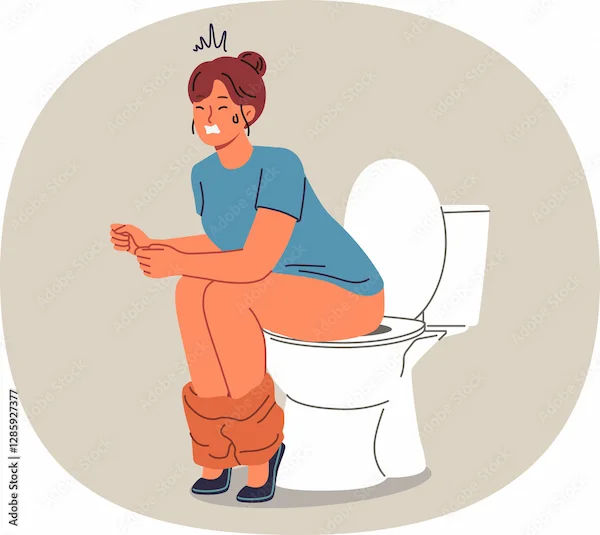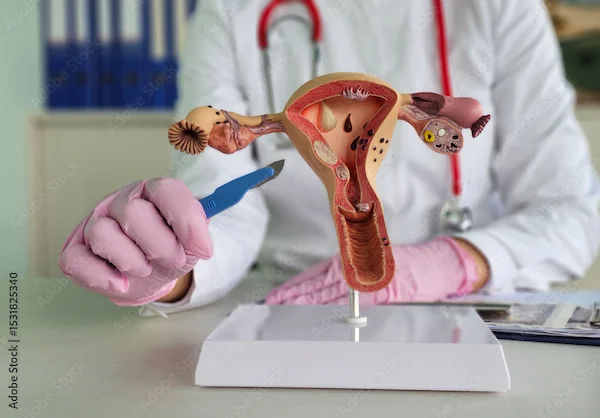Complications During Vaginal Hysterectomy
Learn about potential complications during vaginal hysterectomy, including risks like infection, bleeding, and organ injury. Understand how these are managed to ensure a safe recovery.


Introduction
A vaginal hysterectomy is a surgical procedure to remove the uterus through the vagina. It is often recommended for conditions like uterine fibroids, endometriosis, prolapse, or abnormal bleeding. While it is generally considered safe, like any surgery, it carries some risks. This article will help you understand the possible complications, how to recognise them, and what steps you can take to ensure a smooth recovery.
Common Complications During and After Vaginal Hysterectomy
Common complications during and after vaginal hysterectomy are:
1. Bleeding (Hemorrhage)
Some bleeding is normal after surgery, but excessive bleeding (haemorrhage) can occur in rare cases. Signs include:
Heavy vaginal bleeding (soaking a pad in less than an hour)
Dizziness or fainting
Rapid heart rate
What to do?
Contact your doctor immediately if bleeding is severe.
Rest and avoid strenuous activities.
2. Infection
Infections can occur at the surgical site or inside the pelvis. Symptoms include:
Fever (above 100.4°F or 38°C)
Foul-smelling vaginal discharge
Severe pelvic pain
Prevention & Care:
Keep the surgical area clean.
Take prescribed antibiotics on time.
Avoid using tampons or having intercourse until your doctor approves.
3. Damage to Nearby Organs
During surgery, nearby organs like the bladder, ureters, or intestines may accidentally get injured. Symptoms depend on the affected organ:
Bladder injury: Painful urination, frequent urges, or blood in urine.
Bowel injury: Severe abdominal pain, bloating, or inability to pass gas.
What to do?
Report any unusual symptoms to your doctor immediately.
Additional surgery may be needed to repair the damage.
4. Blood Clots (Deep Vein Thrombosis - DVT)
Surgery increases the risk of blood clots in the legs (DVT), which can travel to the lungs (pulmonary embolism). Signs include:
Swelling, redness, or pain in the legs
Sudden shortness of breath or chest pain
Prevention:
Move around as soon as possible after surgery.
Wear compression stockings if advised.
Stay hydrated.
Consult Top Specialists for Personalised Tips
5. Vaginal Cuff Dehiscence (Rare but Serious)
The top of the vagina is stitched closed after removing the uterus. In rare cases, these stitches may open, leading to:
Sudden severe pain
Bleeding
A feeling of something coming out of the vagina
What to do?
Seek emergency medical help if this happens.
6. Urinary Problems
Some women experience:
Difficulty urinating
Leakage (stress incontinence)
Frequent urinary tract infections (UTIs)
Management:
Pelvic floor exercises (Kegels) can help strengthen muscles.
Drink plenty of water to prevent UTIs.
7. Long-Term Effects
Early menopause (if ovaries are removed)
Vaginal dryness or discomfort during sex
Pelvic organ prolapse (in rare cases)
Coping Strategies:
Hormone therapy (if menopause symptoms are severe).
Use vaginal moisturisers or lubricants if needed.
How to Reduce the Risk of Complications?
Ways to reduce the risks of complications are:
1. Before Surgery:
Choose an experienced surgeon: Ask about their success rates.
Discuss medical history: Inform your doctor about any bleeding disorders, allergies, or previous surgeries.
Quit smoking: Smoking slows healing and increases infection risk.
2. After Surgery:
Follow post-op instructions: Avoid lifting heavy objects or strenuous activities for 4-6 weeks.
Keep the incision clean: Follow hygiene instructions carefully.
Eat a balanced diet: High-fibre foods prevent constipation.
Stay hydrated: Helps in healing and prevents UTIs.
Attend follow-ups: Regular check-ups ensure proper recovery.
When to Seek Immediate Medical Help?
Call your doctor or visit the emergency room if you experience:
Severe pain or bleeding
High fever (above 101°F or 38.3°C)
Chest pain or trouble breathing
Signs of infection (pus, foul-smelling discharge)
Recovery Timeline: What to Expect?
First 1-2 weeks: Rest, light walking, avoid heavy lifting.
3-6 weeks: Gradual return to normal activities.
6+ weeks: Most women can resume work and exercise (with doctor’s approval).
Conclusion
While vaginal hysterectomy is generally considered safe and minimally invasive, complications can occasionally arise, including bleeding, infection, damage to nearby organs, or anaesthesia-related issues. Early recognition and prompt medical intervention are key to managing these risks effectively. By staying informed, following post-operative care instructions, and maintaining open communication with your healthcare provider, you can significantly reduce the likelihood of complications and support a smoother recovery journey.
Consult Top Obstetrics and Gynaecology Surgeon
Consult Top Specialists for Personalised Tips

Dr. Pallab Roy
Obstetrician and Gynaecologist
6 Years • MBBS, MS Obstetrics & Gynecology
Kolkata
Dr Pallab Roy, Kolkata
(25+ Patients)

Dr. Saheli Kapat
Obstetrician and Gynaecologist
11 Years • MBBS, DNB Obstetrics & Gynaecology,FMAS(Fellowship in Minimal access surgery)
Kolkata
MCR SUPER SPECIALITY POLY CLINIC & PATHOLOGY, Kolkata

Dr. Divyashree S
Obstetrician and Gynaecologist
7 Years • MBBS, MS (OBG)
Bengaluru
Apollo Clinic, JP nagar, Bengaluru

Dr. Bidisha Roy Choudhury
Obstetrician and Gynaecologist
17 Years • MBBS , DNB(Obstetrics & Gynaecology)
Bansdroni
Siddhita Healthcare., Bansdroni

Dr. Somdutta Basu
Obstetrician and Gynaecologist
7 Years • MBBS, MS Obstetrics & Gynaecology
Bansdroni
Siddhita Healthcare., Bansdroni
Consult Top Obstetrics and Gynaecology Surgeon

Dr. Pallab Roy
Obstetrician and Gynaecologist
6 Years • MBBS, MS Obstetrics & Gynecology
Kolkata
Dr Pallab Roy, Kolkata
(25+ Patients)

Dr. Saheli Kapat
Obstetrician and Gynaecologist
11 Years • MBBS, DNB Obstetrics & Gynaecology,FMAS(Fellowship in Minimal access surgery)
Kolkata
MCR SUPER SPECIALITY POLY CLINIC & PATHOLOGY, Kolkata

Dr. Divyashree S
Obstetrician and Gynaecologist
7 Years • MBBS, MS (OBG)
Bengaluru
Apollo Clinic, JP nagar, Bengaluru

Dr. Bidisha Roy Choudhury
Obstetrician and Gynaecologist
17 Years • MBBS , DNB(Obstetrics & Gynaecology)
Bansdroni
Siddhita Healthcare., Bansdroni

Dr. Somdutta Basu
Obstetrician and Gynaecologist
7 Years • MBBS, MS Obstetrics & Gynaecology
Bansdroni
Siddhita Healthcare., Bansdroni




